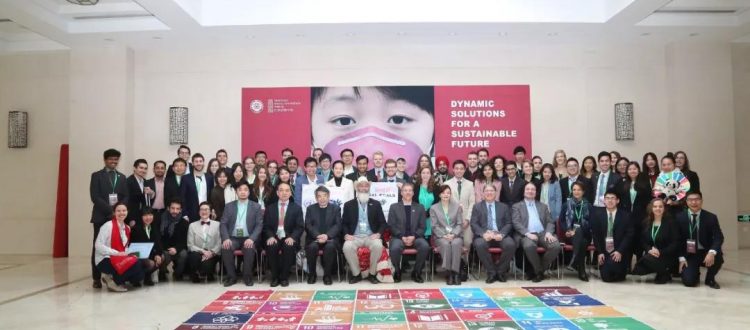Sharing Citizen Science at Yenching Academy Sustainable Innovation Forum
On December 9 and 10, Global Environmental Institute engaged delegates of Yenching Academy’s Sustainable Innovation Forum on the topic of‘Citizen Science for Sustainability.’
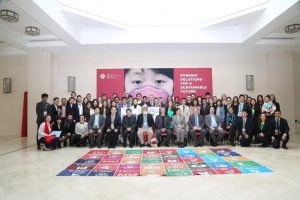 Photo Credit: Yenching Social Innovation Forum
Photo Credit: Yenching Social Innovation Forum
Over the course of these two events, GEI introduced how our ‘public science’ methodology is integrated into each of our Ecosystem Conservation and Community Development projects. We also challenged the participants to think about the citizen science projects in their own community.
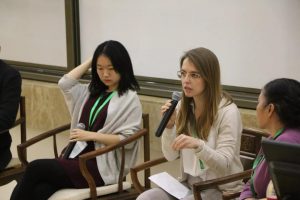
Photo Credit: Yenching Social Innovation Forum
Kendall Bitonte, GEI External Relations Coordinator, participated in a panel with Xiaoyuan ‘Charlene’ Ren from MyH20 and Andrew Tsui from Rooftop Republic, the panel was moderated by Dr. Zhang Shiqiu.
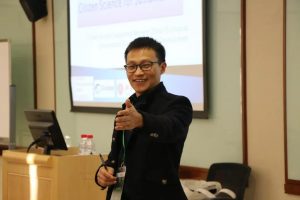
Photo Credit: Yenching Social Innovation Forum
Dr. Kui Peng, GEI Ecosystem Conservation & Community Development Program Manager, assisted by GEI’s Dongquan Long, led a workshop on Dec. 10 that put the Citizen Science topics into action.
What is citizen science?
Citizen science isn’t a type of science, rather it’s a methodology for doing scientific research that involves non-scientists in the scientific process.
Most generally, citizen science projects involve non-scientists in gathering data on a particular problem or phenomenon and then submitting their data to scientists or other experts. However, the projects can vary a lot in their design and objectives. Supporters of citizen science believe it can make science more inclusive, accessible and, overall more accurate.
Citizen Science can take many forms but, at its core, it connects science and communication with the public. Source: Elizabeth Tyson – 2017
What is the biggest benefit to citizen science?
By getting more people thinking critically about the world around them, society becomes more mindful and more responsible.
In it’s most ideal form, citizen science is a ‘win-win’ scenario: scientists get more data and research becomes more precise; the public gains knowledge about their world and community involvement is increased.
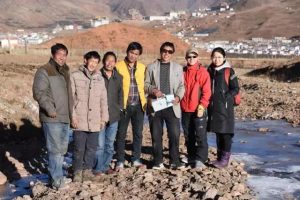
Photo: GEI – 2017
Through Citizen Science, even herders in the middle of the Tibetan Plateau can participate in scientific research- there are no limits!
So what citizen science does GEI do?
GEI’s program work is largely located in China’s Western regions, overlapping with many of China’s Key Ecosystem Areas.
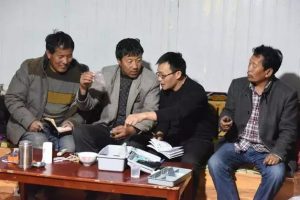
Photo: GEI – 2017
GEI’s Program Manager Dr. Kui Peng (second from right) leading a training on water quality monitoring. Proper training is necessary for citizen science to flourish and be successful.
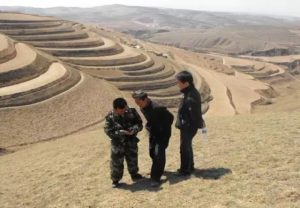
Photo: GEI
Patrollers monitoring the grassland in Ningxia.
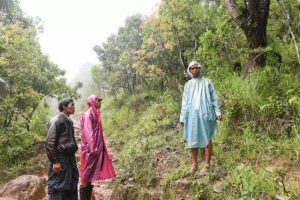
Photo: GEI 2017
In Myanmar, we are working with the villagers to patrol their community forest for deforestation.
What is the next stage for citizen science?
Improved technology and better access to this technology can help us solve some very practical problems. Afterwards, citizen science can really flourish.
Currently, the prime set-backs to citizen science include data quality and verifiability. Furthermore, projects must consider challenges like how and where the data will be stored, who can submit data, who has access to the data, etc.
In a perfect world, each citizen science project would have some sort of APP, which works on multiple devices, is free to download, automatically geo-tags data. has metrics to help verify the data, and automatically links to a data storage cloud. This technology exists, but you’ll see that the people doing citizen science projects still lack access to this technology.

